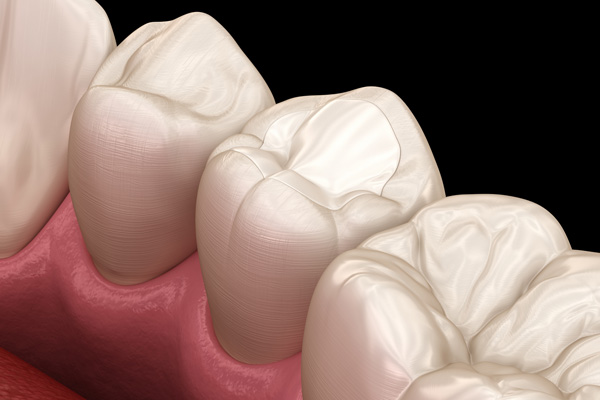Myths vs. Facts About Dental Anxiety

Dental anxiety is a common issue that affects people of all ages. This term refers to the fear, anxiety, or stress of dental visits. There are several misconceptions about dental anxiety, leading to additional fear or avoidance of necessary dental care. By separating facts from fiction, patients can better understand this condition and go to dental appointments without fear.
Common myths about dental anxiety
Myth: Dental anxiety is rare
Dental anxiety is not a rare condition. According to the Cleaveland Clinic, a significant portion of the population experiences some degree of dental anxiety: Research suggests that as many as 36% of adults in the U.S. have a mild to moderate fear of dental treatment. Additionally, an estimated 12% of adults experience severe fear around dental care. This widespread prevalence demonstrates a common issue requiring understanding and support from general dentists and loved ones.
Myth: Only children get dental anxiety
Dental anxiety is not exclusive to children. While it is true that children often express fear of the dentist due to unfamiliar environments or negative past experiences, adults are equally affected. For some adults, dental anxiety persists from bad experiences that they experienced during childhood. Meanwhile, other adults develop it later in life due to traumatic dental procedures or heightened sensitivity to pain.
Myth: Avoiding dental appointments solves the issue
Avoiding dental visits due to anxiety can, in fact, worsen oral health issues. When a person skips regular checkups and cleanings, minor dental problems, such as cavities or gum inflammation, can progress into severe conditions that require more extensive and invasive treatment. This cycle can increase dental anxiety further, making professional care even more intimidating. Addressing dental anxiety in its early stages can prevent this downward spiral and ensure better long-term oral health.
Myth: Dental procedures are always painful
Modern dentistry offers advanced techniques and technologies to minimize discomfort during dental procedures. Local anesthesia, sedation dentistry, and the use of dental lasers have all made treatments less invasive and more comfortable. Today, general dentists also undergo specific training to recognize signs of dental anxiety in their patients and provide gentle care tailored to each patient’s needs.
Myth: Sedation dentistry is unsafe
Sedation dentistry is a safe and effective method for managing dental anxiety when performed by trained professionals. General dentists carefully assess each patient’s medical history, current health, and anxiety level to determine the most appropriate form of sedation. Common dental sedation options include nitrous oxide (laughing gas) and oral conscious sedation.
Myth: Patients cannot overcome dental anxiety
Dental anxiety is manageable with the right approach and support. Techniques such as cognitive behavioral therapy, mindfulness, and gradual exposure to dental settings can help individuals overcome their fears. Many dentists also prioritize creating a calming environment, offering anxious patients the ability to wear noise-canceling headphones, listen to soothing music, and maintain clear communication to ease dental anxiety. Seeking professional help and adopting coping strategies can significantly reduce dental anxiety over time.
Myth: Dental anxiety indicates weakness
Experiencing dental anxiety does not reflect weakness or a lack of resilience. Anxiety is a natural response to perceived threats, and dental anxiety often stems from genuine fears, such as past negative experiences, fear of pain, or feelings of helplessness in the dental chair. Recognizing dental anxiety as a legitimate condition is the first step in addressing it with compassion and understanding.
How to manage dental anxiety
For patients struggling with dental anxiety, there are several strategies that can make dental visits more manageable. These include:
- Communicate with the dentist. Openly discussing fears and concerns with a dentist allows for tailored care. Many dentists are experienced in managing anxiety and can adjust their approach to ensure patient comfort.
- Schedule morning appointments. Scheduling visits early in the day can reduce anticipatory anxiety by minimizing the time spent worrying about the appointment.
- Practice relaxation techniques. Deep breathing exercises, meditation, and progressive muscle relaxation can help reduce stress before and during dental visits. Listening to music during checkups can also reduce feelings of dental anxiety.
- Bring a supportive companion. Having a trusted friend or family member present during the appointment can provide reassurance and a sense of security.
- Consider sedation options. Many dental offices offer sedation dentistry options that can make procedures more comfortable for those with severe dental anxiety.
Our team is here to support you
Dental anxiety is a common and manageable condition. There is no shame in being afraid of dental care. However, it is important to understand that avoiding dental appointments can continue or worsen the issue. The Ohio Cosmetic Dentists team is here to make your next dental visit as easy as possible. Call our Columbus office to learn more or to schedule a consultation.
Request an appointment here: https://www.ohiocosmeticdentists.com or call Ohio Cosmetic Dentists at (614) 503-5240 for an appointment in our Columbus office.
Check out what others are saying about our dental services on Yelp: Dental Anxiety in Columbus, OH.
Recent Posts
Is dental anxiety preventing you from getting the oral care you need? Read this article to learn how a pain free dentist may be the answer to your problem. Many people dislike the thought of sitting in a dental chair due to various reasons, such as painful procedures or negative past experiences. However, the most…
Are you concerned about whether or not you will receive painless dentistry at your next appointment? You aren't alone. In fact, many people every year simply avoid the dentist altogether out of fear that they will have a painful experience. Unfortunately, for some people, they have already had a negative experience, so it's even more…
Many people start their search for a local dentist by typing "find a dentist near me" into the search box of their internet browser. However, finding a local dentist who provides high-quality care, feels comfortable, and meets your or your family's dental needs starts with knowing what to look for. Understanding the key features of…
Most people will experience at least one dental cavity in their lifetime. Fortunately, tooth-colored fillings can be used to treat tooth decay with natural-looking results. The care required for fillings is minimal; most people forget about them after a few weeks. However, choosing healthy lifestyle habits can help keep tooth-colored fillings in excellent shape, allowing…


